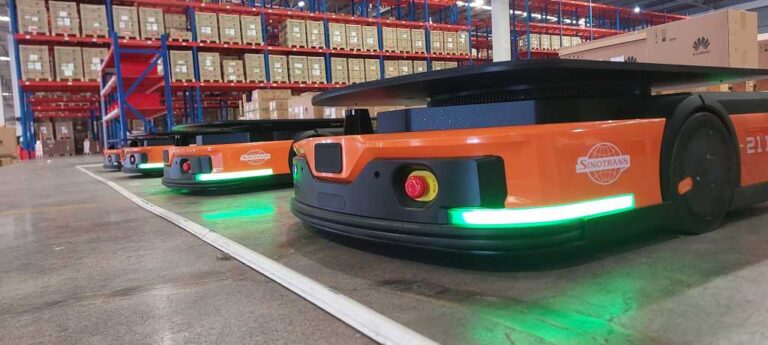In a rapidly evolving global landscape, Indonesia recognizes the critical role of the digital economy in promoting sustainable development and fostering inclusive growth. The Golden Indonesia Vision 2045 therefore focuses on leveraging digital technologies to enhance productivity, competitiveness and resilience across all sectors of the economy.
Indonesia’s digital economy is thriving and is predicted to grow up to eight times to around $291 billion by 2030. According to the International Trade Bureau, the e-commerce sector is the driving force behind the country’s thriving digital economy, with revenue reaching approximately $51.9 billion in 2022. This is predicted to increase from $52.93 billion in 2023 to $86.81 billion by 2028. Moreover, Indonesia holds 40% of the total value of ASEAN’s digital economy.
Indonesia’s strategic position within ASEAN amplifies the importance of its 5G efforts. As Southeast Asia’s largest economy, Indonesia has become a key driver of regional economic integration and digital transformation. By becoming a stepping stone to 5G deployment, Indonesia will not only improve its own digital capabilities, but also set a precedent for other countries to follow.
Sophisticated, effective, efficient and environmentally friendly: this description of the benefits of 5G technology is what flashed in the mind of Mr. Ismail, Director General of Postal Information Resources and Devices, Ministry of Communications and Information, Indonesia, at the launch of 5G. A warehouse in West Cikarang, West Java.
“The existence of Huawei 5G Smart Warehouse is a wake-up call for the entire ecosystem to be able to immediately integrate 5G technology into digitalization, and at the same time a breakthrough that will be beneficial not only to the logistics industry but also to the logistics industry. This could be a good example of clearly providing a solution for many other areas as well,” Ismail said.
This bodes well for Indonesia, which is projected to become the world’s fourth-largest economy by 2045, with a gross domestic product of $9.8 trillion. To realize the Golden Indonesia Vision 2045, Indonesia needs to evolve its digital infrastructure. 5G connectivity is the starting point for increasing the capacity and capabilities of the country’s digital infrastructure.
A notable example is the implementation of 5G in smart manufacturing in Thailand. Siasun, a leading provider of industrial robotics and automation technology, and Huawei have joined forces to support industries such as healthcare, logistics, manufacturing, mining, oil & gas, and ports. This collaboration introduced Siasun’s AGV, ASRS, and robotic systems and Huawei’s 5G ICT technology.
Given Indonesia’s promising demographics and significant expansion in the retail and e-commerce industries, the logistics sector is expected to continue its rapid growth. Huawei’s 5G warehouse serves as a case study of how 5G technology goes beyond logistics and plays a key role in improving quality for diverse industries, including business owners and workers.
Smart technology in smart warehouses
Huawei’s 5G BTS technology, which supports all business operations in a 5G warehouse, consumes only 5 watts of energy, or the energy equivalent of one energy-saving light bulb. This low energy consumption makes Huawei’s 5G BTS technology a sustainable solution for the future.
Mr. Long, CEO of Huawei Indonesia, affirmed Huawei’s efforts to support the government and industry stakeholders to unlock digital opportunities in Indonesia.
“At last year’s Solo 5G Summit, we committed to strengthening the 5G ecosystem with our industry partners. The 5G warehouse proves the value that 5G technology can provide to Indonesia’s traditional industries,” he said. said.
As part of TelkomGroup, Telkomsel Enterprise provides 5G broadband connectivity to facilitate fast and accurate communication between staff and autonomous guided vehicle (AGV) robots while ensuring efficiency in the movement of goods within warehouses. Additionally, Telkomsel Enterprise offers intelligent security systems with video and infrared sensors to maintain warehouse security.
Indra Mardiatna, Director of Networks at Telkomsel, said: “Telkomsel is confident that the introduction of 5G smart warehouses and the conceptual solutions of the 5G Innovation Center will open up a transformative era for professionals in the field of logistics, especially with improved management skills.” Warehousing Improve system operational efficiency. ”
Deploying 5G in warehouse systems can improve operational efficiency by up to 20 times due to highly accurate product management. Additionally, 5G technology will enable collaboration between a human and his AI-based robots, pushing smart warehouse capabilities to new heights.
It’s no surprise that over the past three years, the wave of 5G technology adoption has accelerated globally at up to three times faster than 4G. Currently, the deployment of 5G is moving from trials to commercial deployment, and the number of 5G network users in the world has reached 700 million, a jump of more than 200% in one year.
Indonesia continues to be a pioneer in 5G implementation and is poised to reap the benefits of a truly connected and digitally empowered society. The presence of Huawei 5G Warehouse and Solo Technopark, equipped with 5G technology advancements, is a joint effort of Indonesia’s digital ecosystem to convince the people and government of how technology can be useful in life in a 5.0 society. I’m letting you do it. This is an important step forward in Indonesia’s digital transformation journey. This facility will pave the way to a more efficient, competitive and sustainable future by introducing the power of 5G to the logistics industry.


